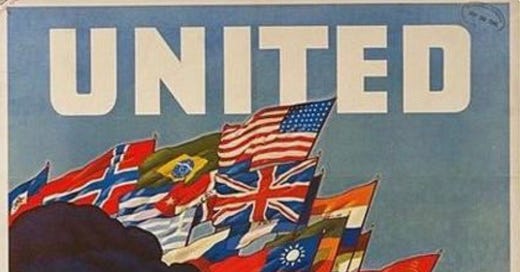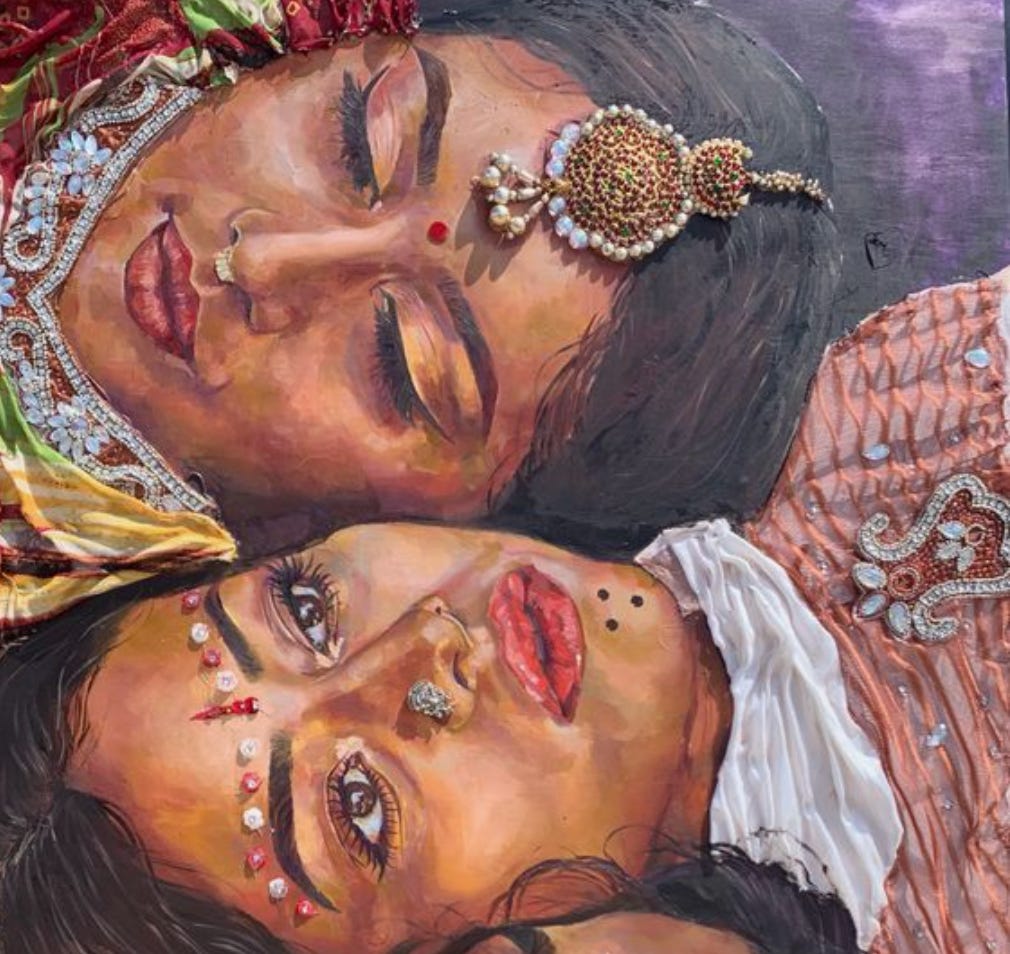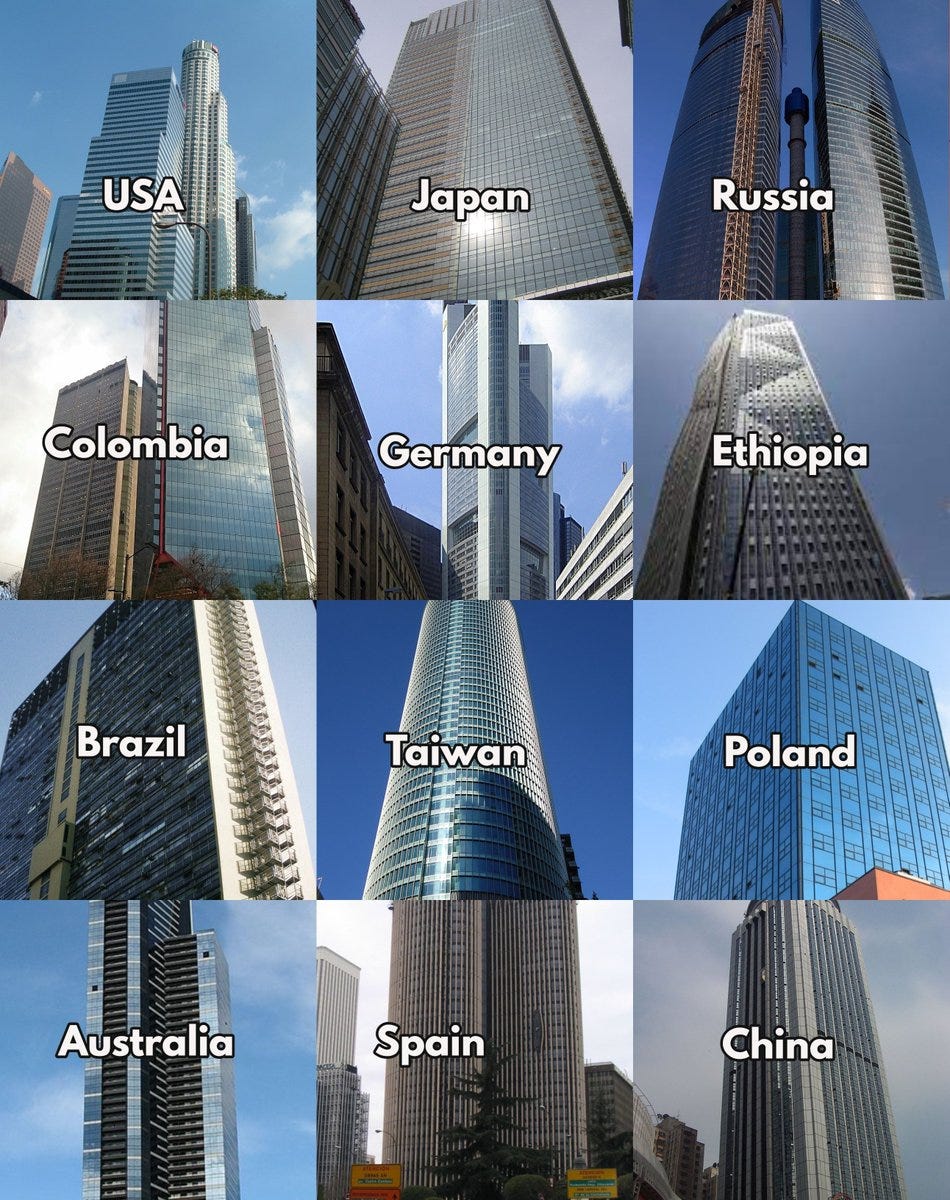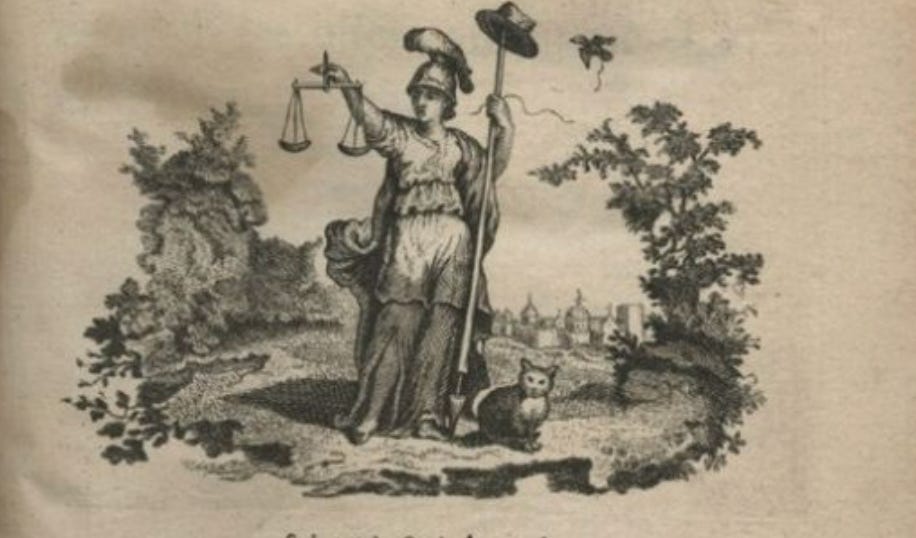The stories of old tell us that the desert is the realm of illusion and mirages. Anyone who ventures there will not see with his eyes, but will see what the desert allows him to see. Who can navigate such a landscape but the Bedouin, who speaks the language of the sand and the stars. Bedouin simply means nomad, someone whose home is not fixed to a plot of land, but to a restless heart, with the same disposition for change as the sand dunes. Perhaps this is why Islam flourished so well in the Middle East, where a constantly shifting ground made man crave the resolute Law of God, as can best describe the philosophy of this religion.
The fall of the West has precipitated the rise of the East to take its place and fill the power vacuum. The dereliction of places like San Fransisco and New York as they are overcrowded with homelessness, crime, drug addicts and degeneracy, has shattered the fantasy these cities once held for people. Europe is now, in many places, a neglected train station for refugees who stomp on its cobbled stone with carelessness, if not outright disdain. Men in camouflage guard the last bastions with AK-47s outside the Florence Duomo, protecting the last treasures of the West against the tide of destruction that leftism has wrought.
But there is one place that offers an oasis of safety and sanity from this destruction. In the middle of the desert, far away in the east, there rises a tower taller than the rest, that tells the weary traveller, “come here and rest your feet a while, here you do not need to worry”. Of course the danger with oases is that until you touch them, you cannot be sure they are not a mirage, a morphia to ease the death from depravation.
It is from Dubai that I write this dispatch to you, my dear readers. An international city is a bit of an oxymoron because it is both geographically limited to one place, and also noplace because it is international. But no matter how much an outsider may flourish here, he will always be reminded that he is an outsider. These palm trees, this coast, these glittering lights, are only borrowed so long as he is here. Nevertheless, let us profit from the shade of these palm trees to reflect about the homelessness that has been growing like a plague in the places that we come from.
Where do we come from?
There are many ways to answer this question. There is the place that you were born, the place that you were raised, the place that your ethnic ancestors find their roots (at least for the last few hundred years), there is the place that you pay taxes and then finally there is the place that is written on your passport. It is a rare person for whom all these places are one place, and for whom this place will not change.
This is why the arguments of nationalists today ring so hollow and trite. An Algerian is not an Irishman he is an Algerian even if he lives in Ireland his whole life. Meanwhile, an “Irishman” by ethnicity and passport is raising his family in Singapore and only really got the passport by relationship to a grandparent he’s never met, just so he can spend as much time as possible in Italy. Who is more Irish? An Englishman by ethnicity who was born and raised in Detroit, is he more English than an Indian by ethnicity born and raised in Stratforshire who loves Shakespeare and Charles Dickens? Rudyard Kipling was an Englishman who spent most of his life in India, and knows more about it than any “Indian” who lived his whole life in New York. To whom does a culture belong? To whom does a nation belong?
I saw a white girl with light brown hair dancing Bharatnathyam on Instagram last week. She was wearing a beautiful sari and had jasmine flowers in her hair. She is obviously not ethnically Indian but I think she has a better grasp of Indian culture than most “desi” girls born and raised in Toronto who think respecting their culture is about wearing slutty Indian clothes at weddings for photo ops. That white girl is more Indian than many “Indian” girls in many ways.
However, the problem of home in the modern world is far from as simple as cultural identity (inherited or preferred).
Technology and the History of Distance
The study of history can help us to understand the present because it shows us how human nature responds to a variety of social, military and political circumstances. How do you make a population acquiesce to slavery? How do people respond to authoritarianism? How do people manage democracies big and small? But perhaps there is something that the study of history does not prepare us for...how technology that dissolves the distances on Earth, the distances that keep people, cultures and kingdoms separate, affects the idea of a “homeland”. I have written about the history and philosophy of conquest here.
Before the invention of airplanes, that collapse the months long journey around the world to a matter of half a day, people had a much greater sense of distance. When people had to travel great distances, they often had to leave behind everything they knew, foreseeably, forever. A six month journey was not only expensive both in money and time, but also perilous, as there was such a great chance of disease or death. As a result, people who moved to a new place did not do so capriciously, they moved to make the place their home.
Before nations there were kingdoms, principalities, city states and empires. People defined themselves based on where they lived because it meant something. You couldn’t move very easily so identity based on location made sense. It also spoke to your family heritage, your network and your political and economic loyalties.
Today, people can move around the world very easily. Europe is only seven hours from North America and another seven from the Middle East. If you simply sit in metal box for 20 hours, you can go from Canada to China. This is unheard of in human history and this has significantly affected both geopolitics and the psychology of home.
It is not only the poor migrants who are moving from third world countries to Europe and America, it is also the wealthy and the middle class shifting to remote work, or starting their own online businesses, or finding more enticing job packages in other countries.
(The difference between a migrant and an expat is this: the migrant takes from the country whereas the expat contributes to it. Is it a coincidence that expats are usually westerners going elsewhere whereas migrants are always everyone else going to the west? I’ll leave that to you to think about with my article about the west.)
This means defining a person based on their passport is not as meaningful. It simply tells us which arbitrary set of laws they are beholden to. Perhaps knowing where someone has grown up is meaningful because this can tell us about their cultural influences and assumptions about the world. But even this is being contested as the dominant cultures in different countries change, or worse, become melted into the same beige globalist pot.
On the Origin of Culture
It would seem that every major city looks like every other major city today. Cultures around the world are beginning to mimic eachother and melt into the same colour. There are two reasons for this. The first reason is that travel has become easy. As a result, if you can buy something in India, it is very easy to ship it to New York and make it also available there. You can buy spring lamb from Australia in the middle of the desert in Dubai. When travel was more difficult, a person who wanted to buy shoes in one town in Germany would find it easier to buy them from a cobbler in his own village rather than one in a neighbouring town or a different province. Because there was no mass manufacturing (which relies on mass distribution made possible through easy travel), individual towns nurtured individual designs and artistry. This artistry became a portmanteau for culture as we know it. Today, when people hold on to Gujurati culture for example, they mostly just hold on to the particular way that people in the region of Gujurat, India made dresses in a slightly different way than people in Punjabi, India. These dress designs are a source of identity. It is just as ridiculous and trite as that.
As people today attempt to resist “the beige-ification” of their culture, they cleave ever more strongly to these ridiculous, insignificant cultural idiosyncrasies that actually aren’t that relevant to a person’s mindset and values. “Lederhosen” is the extent of German culture for many people today. This belies a greater truth about the needs of the human psyche: we need artistry and artisanship to define our identities. We need, in other words, art. In order for culture to be reinvigorated with life and to be relevant to us today we must make new art and it must be out of love. This is the only way we can escape what feels like many cultures of perpetual nostalgia. Your culture is not the clothes that your ancestors happened to wear or the music they happened to listen to. You culture is what you are creating today. If that is nothing, then your culture is also nothing.
“Here is your personalized culture” - Love, the Algorithm
Oh yeah, and the second reason! I almost forgot. The second reason for the beige-i-fication of culture is how quickly information can travel. Hollywood can export all its cultural tropes, viruses, poisons etc to every country with internet access. This means that cultural values are not even limited to one place. But something even more interesting is happening with the downfall of “mainstream media” and the rise of the “algorithm”. We no longer have unifying cultural experiences as a generation.
For example, when the tv show sopranos was live, before internet streaming took over tv, everyone watch the show together, everyone waited every week for the next episode. Everyone watched a new movie that came out as a group. There was no way to stream it whenever you wanted to. There was no such thing as bingeing entire seasons of a show by yourself. Furthermore, everyone in a certain country or city was exposed to the same media: the same magazines, tv shows, movies, radio shows, music etc.
Today, the media people consume is completely customizable. Two people living in the same household might be exposed to entirely different media cultures as they go through life. They might listen to entirely different podcasts, music, shows, movies, which are entirely catered to their individual tastes. I wonder how far off it will be before each person has an AI individually write unique dreams for them to inhabit when they want to check out from the world and hypnotize themselves in front of a screen.
The time when a people would be united by one culture has been eroded first by mass media, then by personalized media.
The Rape of the West
The “migrant crisis”. “The Great Replacement Theory”. There are many names for this phenomenon.
Thousands of “migrants” poured into the coast of a small southern Italian town only a few months ago. “Migrants” spill over the border from Mexico to the United States. Immigrants, migrants and refugees alike have not only filled up western cities with speed and rigour over the last five years, but have quickly begun to change the demographic of these places entirely. There is this insistence that it is not their “homeland” and they should go “back to their countries”. There is good reason for these complaints. Only recently, an Algerian migrant stabbed Irish children in Ireland, inciting mass riots throughout the country to which the government responded that anyone who complains about migrants will be incarcerated.
Syrians stabbed little children in a playground in France several months ago.
Pakistani grooming gangs regularly kidnap and rape girls in England.
Story after story reveals non-Europeans entering Europe and committing atrocious acts of violence in what were once safe cities. Meanwhile slimy politicians and their limp necked, thin lipped employees wring their hands pretending that “racism” is the worst thing that a person could possibly do and refuse to address the problem entirely.
Immigrants who entered countries in the past could not do so at the breakneck speed at which migration is happening today because it was prohibitively expensive to settle down in a new country. This meant that immigrants had the ability to assimilate to the culture of the place they moved to. This means they slowly took on the values and culture of the natives. Their children would then go on to identify more with the new country than with “back home”. The new country would, culturally, be more home to them than the place of their “ethnic origin”. (Let us not even begin to consider the homelessness that must be felt by people who have mixed ethnicities...where is their “proper ethnic home”?)
A third culture kid is a person who has grown up with one culture at home and another in their daily life outside. This kind of person can experience a kind of homelessness as they don’t fully fit in anywhere. However, they tend to be incredibly adaptable people who are more sure of their values because they are forced to contend with the idea of their identity early on rather than accept the absorbed, automatic identity of their surroundings.
With all of the social programs that western countries offer to migrants today, refugees and illegal immigrants included, it is cheaper and easier than ever for people to move countries. As a result, migrants pour in in droves to cities that offer a better quality of life compared to their “home” country. The sheer volume of migrants means that none of these people have the chance to assimilate to the native culture and therefore they transform the host country’s culture.
Additionally, none of these new migrants of today express any interest in assimilating or even of respecting the culture of the country they migrate to. To them, the new country or society is merely a means to an end to extract economic benefit. It does not ever become “home” to them, merely a passport at most. These “migrants” should be relabelled as invaders and leeches and should not be put in the same category as immigrants who really do make their new country their home.
The place where these migrants all go, is of course always the western world.
Western countries and cities have always been the destination for immigrants. Few people are trying to immigrate to China, India or Uganda. It must be stated that this is because traditional western civilization created societies that have functioning justice systems, allow the common man to succeed through merit alone, and protect the innocent. They are (were) more civilized because they did not function by the rule of might, but rather by the rule of law. This has obviously changed and now western countries are completely uninviting culturally, and are only enticing from an economic point of view.
But why? What has caused this change?
Short sighted thinkers like to blame the migrants for the radical change in culture in western societies. They contend that New York, Ireland, the Netherlands, Sweden, London...have become more dangerous because of “non-western migrants” who failed to assimilate because they moved in en masse and thus just maintained their native culture. This argument is attractive because there is some truth to it. What made western societies great was not some particular magic in the soil but rather because of the people that lived there and, more specifically, their cultural values. If you replace the entire native population of Ireland with the Algerians, then Ireland will only be Ireland geographically, but will spiritually and culturally be Algeria.
However, this argument is illogical because the droves of migrants pouring in indicates that something crucial decayed in western societies long before the arrival of the migrants who are blamed. This something was the delusion of leftism. Leftist western politicians created social programs and legislation that permitted and in fact enticed and invited these droves of migrants to enter western societies. They did so because these migrants are a source of cheap labour and also it makes them look good to legacy media, who is the ultimate arbiter of power in “democracy”. If the legacy media doesn’t like you, you’re finished. It doesn’t matter how much good you’re doing, if they hate you, they will make sure the world does too.
As the demographics of a country changes, the country also requires new laws in order to adjust to the change in the culture. Despite an increasingly globalized culture, different demographics are raised with different values, and therefore have different social mores and rules. Modern European politicians, however, are doing the opposite. They are punishing anyone who dares to point out that there have been any changes at all. In fact, they go beyond this and refuse to apply even the existing laws to “people of colour” because their greatest fear is not the death of innocent people, but rather that they will be perceived to be racist. The values of leftists are, after all, only performative. They measure goodness by what will look good on their LinkedIn profile.
The casualties are the most vulnerable and innocent among us, as they usually are.
Ironically, if these governments were actually “anti-racist” they would just apply the laws to everyone the same way and make them more strict. Additionally, they wouldn’t burden their countries with more migrants than the population can handle. I think these politicians should house 50 dangerous homeless men in their personal homes before they are permitted to make another immigration policy.
Escape the Matrix of the Social Contract
The nation state is a fairly new phenomenon in the history of mankind. I will not die for a nation. My home is my family and I will live and be loyal to the place that best suits us, not where we think we “belong” or don’t belong.
Rousseau wrote that the state is created on the foudation of The Social Contract. This means that the state (the government) makes certain promises to protect the natural rights of its citizens against the law of the jungle which is “might”. In returns for this protection, the citizens agree to subdue their “might” and fulfill certain responsibilities and obligations to the state. This applies to all forms of government by the way. When the state does not fulfill its side of the bargain, there will eventually be anarchy. The state will break down. What this looks like materially is that no one is loyal to the state anymore. Everyone is loyal only to the interests of themselves and their kin.
A heterogeneous community can only exist when the state upholds the social contract. But when the state breaks this contract by continually impinging upon and violating the rights of the individuals, exploiting their hard work for personal gain, sponsoring the fraudulent activities of the greedy and the powerful over the citizens...the citizens will check out. They should check out. Who is a Canadian anymore when the government of Canada has sold out its citizens just so a bunch of bureaucrats can cash in fat cheques?
In the absence of the state then, heterogenous communities are too much of a liability. People are clinging to their own groups and networks which are increasingly becoming more closed off to outsiders. The world fragments and I believe this is healthy and natural. The only places where people convene is the transaction.
All I can do is capture, like a historian, what is happening right now. Perhaps by understanding what is happening, we can make better decisions about how to plan our lives. If you are one of those people chest-beating about your ethnic homeland while your own government sells you out and actively conspires in the destruction of your family...I would think twice about the value of your nationalism.
I will end this essay with a little poem by Nizar Qabbani
“The female doesn’t want a rich man or a handsome man, or even a poet. She wants a man who understands her eyes if she gets sad, and points to his chest and says: ‘Here is your home country’.”










Much of the migrant/expat dichotomy can be understood through the lens of capital flows. Migrants are barbarians from third world countries flooding into highly capitalized states like vultures, with the intention of plundering their resources. Expats come from the civilized world, and seek out regions that possess a balance of low cost of living and high quality of life, in which they then proceed to spend money (which they earn by drawing a paycheck from their first world countries). The overall result is a flow of capital out of regions of high concentrations, towards regions of low concentrations.
On the identitarian question, we need to draw a sharp distinction between nation and state. It is only following Westphalia that the two have become conflated. That is clearly no longer viable, for the technological and political reasons you explained. The nations that survive will be those that learn how to live as networked, semi-nomadic diasporas - much as the Jews have done, or the Chinese with their global archipelago of Chinatowns.
This is really excellent. We're heading for a world of economic zones presided over by government officials acting like hedge fund managers (on behalf of the bankster cartel that owns the hedge fund), only with no reason for anyone to be loyal to anything except their own self-interest (and certainly no reason to be loyal to the state or its occupation government). The image that comes to mind for me is that gigantic Costco in the movie Idiocracy, only it will be covering the surface of the entire world, with no reason to travel or migrate anywhere because everyplace will be as blighted and banal as everyplace else. Anything we can do to promote the local and the particular, above the supposedly global and universal, would be advisable.